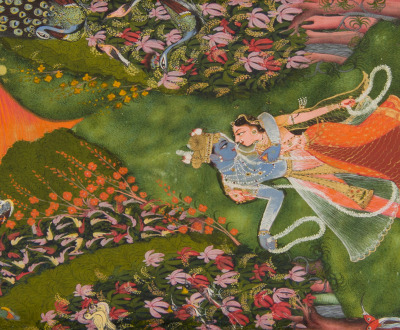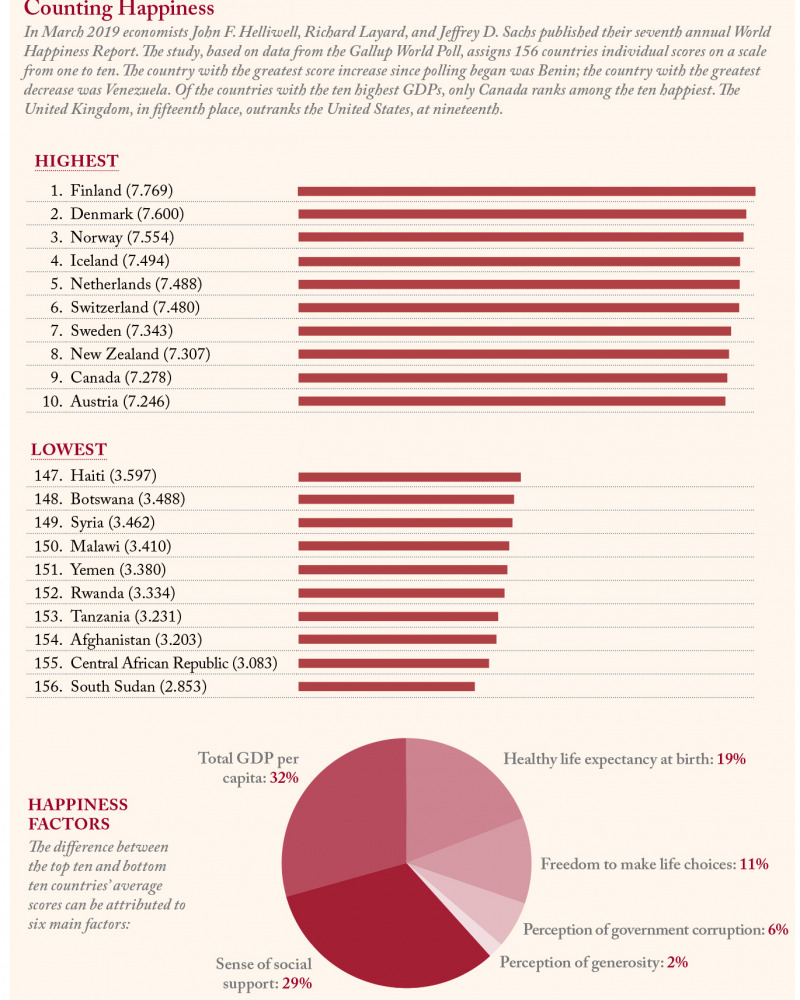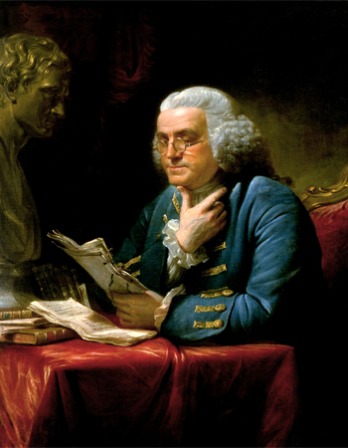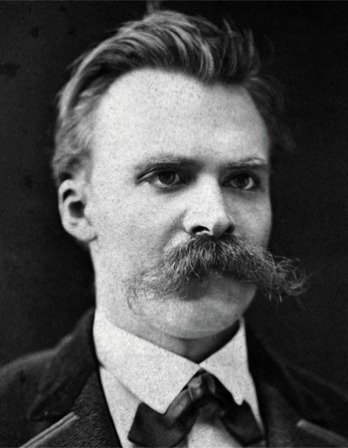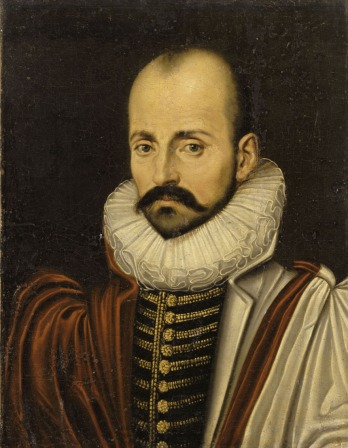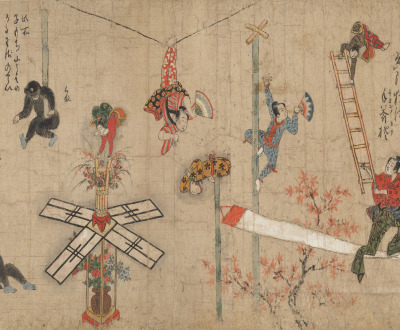
Acrobats (detail), Japanese handscroll, nineteenth century. The Metropolitan Museum of Art, Gift of Mrs. Henry J. Bernheim, 1945.
VIEW:
Miscellany
The Talmud tells of a third-century rabbi named Joseph who died, saw a heavenly paradise, returned to life, and told his father of a world to come that would be “the reverse of this one—those who are on top here were below there, and vice versa.” “My son,” said his father, “you have seen a corrected world.”
A multitude of small delights constitute happiness.
—Charles Baudelaire, 1897
